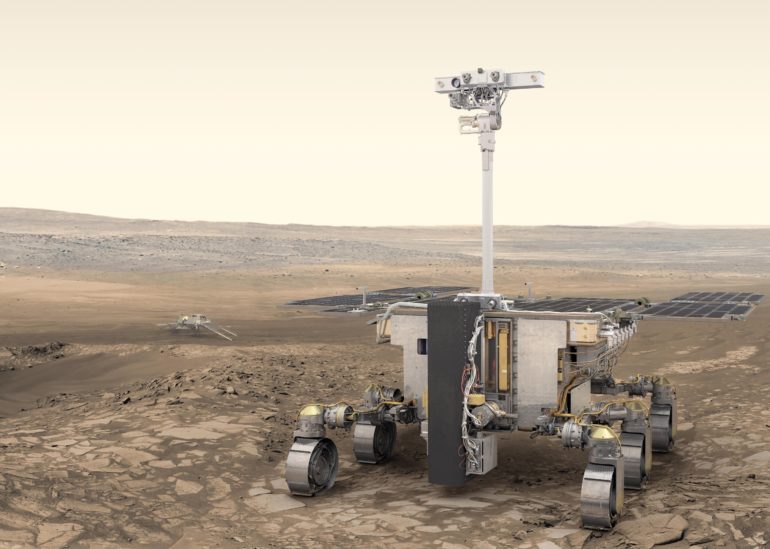NASA has stepped closer to allowing remote onboard computers to direct the search for life on other planets. Scientists from the NASA Goddard Space Flight Center have announced first results from new intelligent systems, to be installed in space probes, capable of identifying geochemical signatures of life from rock samples. Allowing these intelligent systems to choose both what to analyze and what to tell us back on Earth will overcome severe limits on how information is transmitted over huge distances in the search for life from distant planets. The systems will debut on the 2022/23 ExoMars mission, before fuller implementation on more distant bodies in the Solar System.
Presenting the work at the Goldschmidt Geochemistry conference, Lead researcher Victoria Da Poian said, “This is a visionary step in space exploration. It means that over time we’ll have moved from the idea that humans are involved with nearly everything in space, to the idea that computers are equipped with intelligent systems, and they are trained to make some decisions and are able to transmit in priority the most interesting or time-critical information.”
Eric Lyness, software lead in the Planetary Environments Lab at NASA Goddard Space Flight Center (GSFC), emphasized the need to have smart instruments for planetary exploration: “It costs a lot of time and money to send the data back to Earth which means scientists can’t run as many experiments or analyze as many samples as they would like. By using AI to do an initial analysis of the data after it is collected but…


